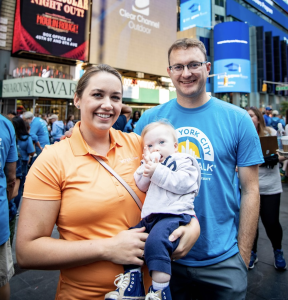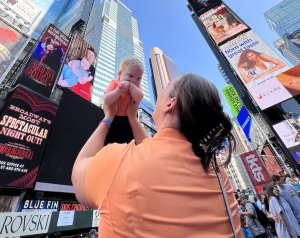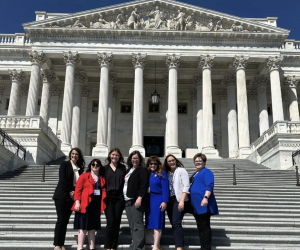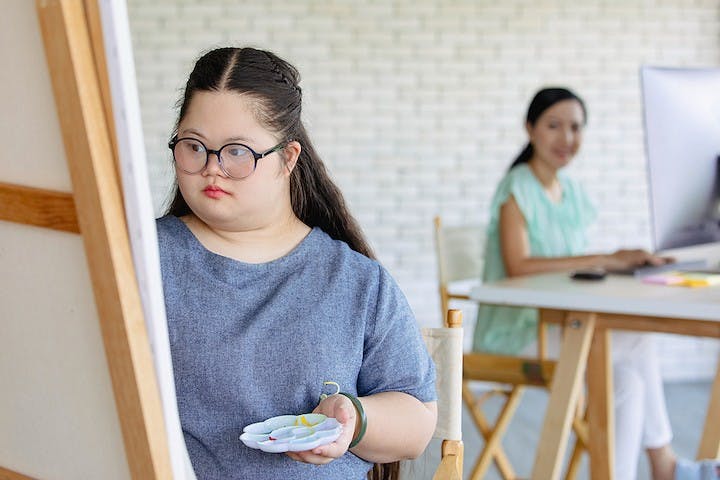Pop-quiz: When there’s a skills shortage, what’s the one thing companies should never do?
If you’re thinking: ‘let perfectly good talent walk from the organization’ – then you’re 100% correct.
But the fact is, companies are letting this happen every single day. That’s because they’re failing to support employees – mainly working mothers – who have specific care duties.
Statistically, mothers work far less than other women, but since the pandemic (according to Stanford’s RAPID survey), 39% of women with children younger than five said they had either quit their jobs or reduced their hours – up from 33% the previous year.
Although more than 90% of these women said they did so of their own accord (ie not because they were laid off or had their hours cut) – the phrase ‘own accord’ should be taken with a pinch of salt.
Commentators agree that the exiting of women from the workforce is being forced on them – because there is not enough care support, and employers aren’t being flexible enough to make accommodations with those with caring needs. As recent research confirms, the number one reason women left or changed jobs was a lack of accessible and affordable child care, according to Motherly’s recent State of Motherhood report.
In fact this research unveils more worrying statistics. It found 18% of mothers sampled changed jobs or left the workforce last year, with the top reason cited being needing to stay at home with children (28%) and lack of childcare.
All-told, if finds two times more women will become stay at home moms this year compared to 2022. Overall, stay at home mom rates have nearly doubled in just under a year – from 15% in 2022 to 25% today.
Caring for disabled children
Things are already bad for mothers with care responsibilities, with nearly two-thirds of moms wanting more flexible work schedules to be able to return to work.
But the plight facing moms is even worse if they are caring for children with a disability – children that often demand mothers take even more time-off to look after them.
For instance, according to a study looking at workers in Norway – which has one of the highest female participation rates on the planet – even here, the impact of child disability on parental employment is huge. It found that children with chronic disabilities increase mothers’ long-term absence from work, with that absence from work more pronounced among mothers who cared for children with more severe disabilities.
Among mothers caring for children with a Grade 4 disability, the difference amounts to 12 percentage points the year after birth and 10.4 percentage points 10 years after birth. The comparable numbers for mothers caring for children with a severity of Grade 1 were four percentage points ten years after birth.
But those who have children with disabilities argue this needn’t be so – if only more employers were more sympathetic to their needs, and could find ways to vary their workloads or to allow them to work flexibly.
It’s worth remembering that employees who ‘do’ feel supported will be incredibly loyal (mainly because they won’t want to leave to join a less supportive workplace).
And another fact is that the accommodations carers need are not as onerous as HR departments actually think. Often it’s literally just given them some flexibility or the ability to work compressed hours.
Still not convinced? Then why not read our interview with mother, Kay Lee Mynatt.
Why not be like her employer too?
CASE STUDY:
Meet Kay Lee Mynatt, husband, Nick, and 20 month-old Spencer.

Spencer is a rather special little boy. He has Down Syndrome – a condition where babies are born with an extra partial (or whole) copy of chromosome 21.
Because of this additional chromosome it is likely Spencer will need some form of special learning need. He will also need more support over the course of his life generally – and particularly in his early years.
But there’s no reason why Spencer shouldn’t grow up to hold down a job, and be as valued a member of his community as anyone else.

Exactly why some babies develop like this still baffles scientist to this day. In fact having already had her first son, Max, Kay Lee says she didn’t even test for Down Syndrome when she became pregnant again. She assumed, like many, that the tiny chance of Down Syndrome (between 1 in 1,000 to 1 in 1,100 live births worldwide – or 3,000-,5000 US babies per year), wouldn’t apply to her. She applied for where she currently works – Voya Financial – when she was pregnant with Spencer, and simply expected everything to go as she expected it to.
“Spencer still isn’t walking or talking, and needs a lot more looking after – therapist visits, more preventative doctors appointments – that sort of thing,” says Kay Lee, who calculates this comes to between 5-10 hours per week.
Had she been working with any other employer, it’s likely these accommodations might not be so easily handled, but at Voya Cares – which helps put those with disabilities on more of a secure financial footing – is almost the perfect place she could be working for.
“I work from home, but I want to be there for his therapy. But while the days can be long, my employer wants to help me succeed, allows me to work flexibly and lets me catch-up with stuff when I need to be with Spencer. It obviously understands this area.”
She adds: “I’m not sure I’d still be working if Voya wasn’t so intentional about its culture and its desire to support care givers.”
Voya runs a specific People with Disabilities & Caregivers Council, an employee-led group that empowers people to lead efforts relating to serving and employing those with disabilities and their caregivers, and Kay Lee has become something of a campaigner for those who have children with Down Syndrome – having recently met with legislators at the Capitol to share her experiences (second from right, below):

She says: “The internet can make Down Syndrome a pretty scary place, but I didn’t want to dwell on what it said Spencer might not be able to do. There’s much more to Down Syndrome than just a diagnosis. Work is a big part of my identity, and just because I have more caring needs, there’s no reason why employers can’t meet these needs.”
She adds: “I anticipate needing to devote less time away from work as he gets older, and they’ll be more structure, and so things will definitely get easier. Voya understands all this – that everyone is likely to be a care-giver at some point in their careers.”
She says: “It’s sad to think that people – mostly mothers – drop out of work just because they have a care role. There is so much talent out there, and if people want to work, but can’t because their employer isn’t supportive, that’s really sad.
Says Kay Lee: “Where mothers have a will to work, companies should take advantage of this.”
